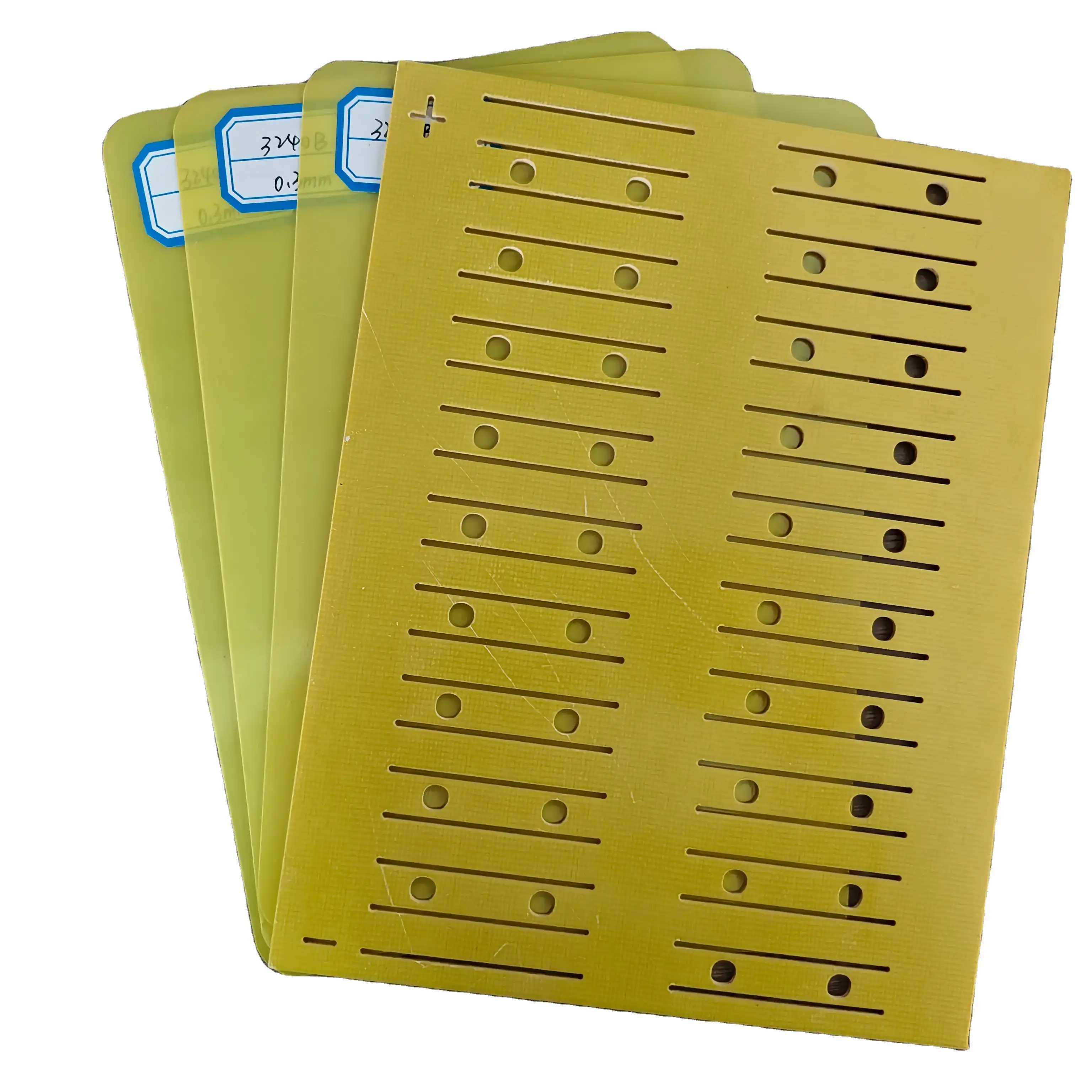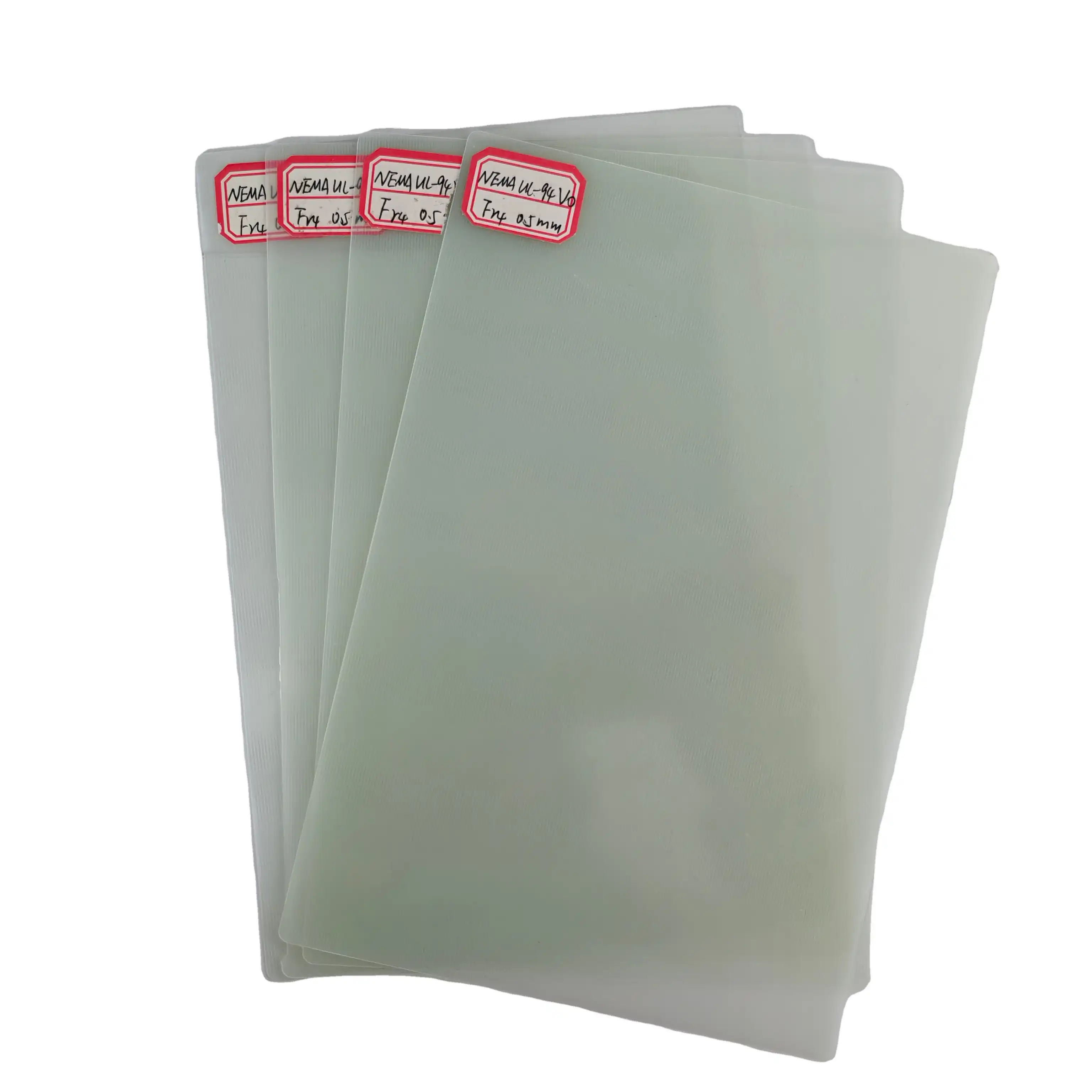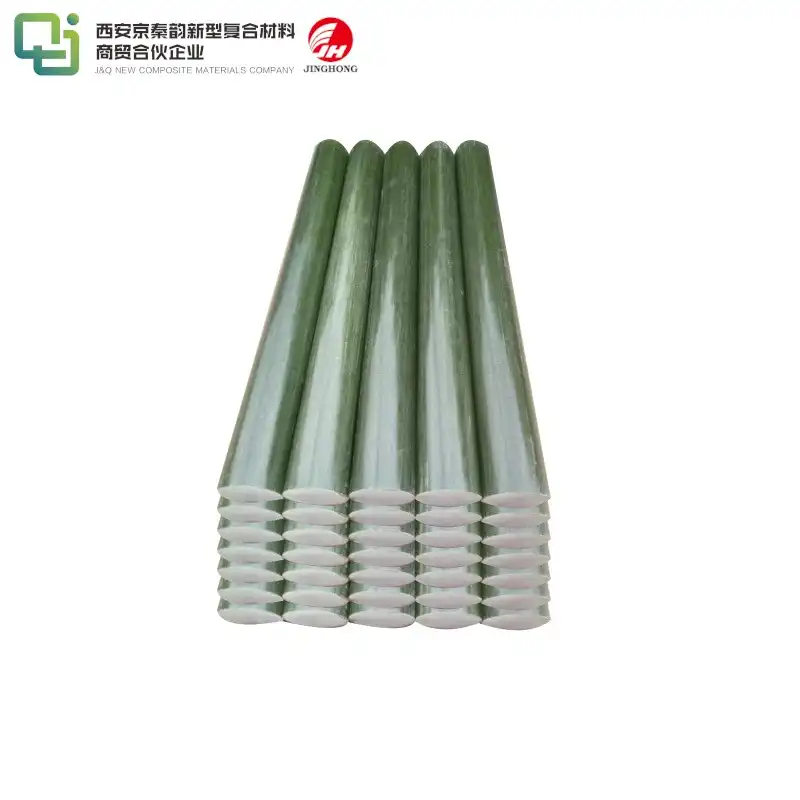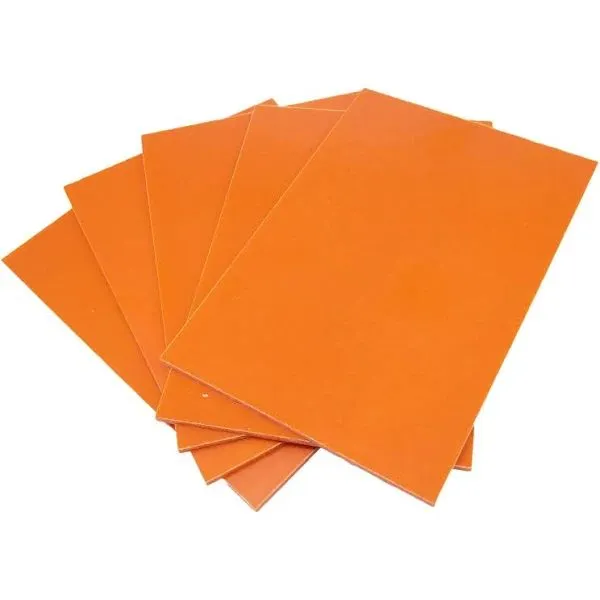Quality control and testing standards of 3240 epoxy sheet
2025-01-13 17:00:31
Quality control and testing standards play a crucial role in ensuring the reliability and performance of 3240 epoxy sheet. These standards encompass a comprehensive set of procedures and tests designed to evaluate the material's physical, electrical, and mechanical properties. Manufacturers employ various methods, including tensile strength testing, dielectric breakdown voltage measurement, and thermal conductivity analysis, to verify that the epoxy sheet meets industry specifications. Additionally, dimensional stability, surface finish, and chemical resistance are assessed to guarantee the product's suitability for diverse applications. Rigorous quality control processes, coupled with adherence to international standards, ensure that 3240 epoxy sheet consistently delivers exceptional insulation properties and structural integrity for demanding industrial uses.
Manufacturing Process and Quality Assurance
Raw Material Selection and Inspection
The journey of creating high-quality 3240 epoxy sheet begins with the meticulous selection of raw materials. Manufacturers scrutinize the epoxy resins, hardeners, and reinforcing materials to ensure they meet stringent purity and performance criteria. Each batch of incoming materials undergoes thorough inspection, including spectroscopic analysis and viscosity measurements. This vigilant approach to raw material quality sets the foundation for producing superior epoxy sheets.
Production Monitoring and Process Control
During the manufacturing process, advanced monitoring systems continuously track critical parameters such as temperature, pressure, and curing time. Sophisticated sensors and data logging equipment provide real-time feedback, allowing operators to make precise adjustments to maintain optimal production conditions. This level of process control ensures consistency in the sheet's molecular structure and physical properties, minimizing batch-to-batch variations.
In-Process Quality Checks
At various stages of production, in-process quality checks are performed to catch any deviations early. These checks include visual inspections for surface defects, thickness measurements using precision gauges, and preliminary tests for hardness and flexibility. By implementing these intermediate quality control measures, manufacturers can identify and rectify issues promptly, reducing waste and ensuring a higher yield of conforming products.

Comprehensive Testing Protocols
Mechanical Property Testing
3240 epoxy sheet undergoes rigorous mechanical testing to verify its structural integrity and durability. Tensile strength tests evaluate the material's ability to withstand longitudinal stress, while flexural strength assessments measure its resistance to bending forces. Impact resistance testing, often using the Izod or Charpy methods, provides insights into the sheet's toughness and ability to absorb sudden impacts. These mechanical tests ensure that the epoxy sheet can withstand the demanding conditions of its intended applications.
Electrical Insulation Testing
Given the critical role of 3240 epoxy sheet in electrical insulation, comprehensive electrical testing is paramount. Dielectric strength tests measure the maximum electric field the material can withstand without breakdown. Volume and surface resistivity tests assess the sheet's ability to impede current flow. Additionally, arc resistance testing evaluates the material's performance under high-voltage arcing conditions. These electrical tests collectively ensure that the epoxy sheet provides reliable insulation in diverse electrical environments.
Thermal and Environmental Testing
To assess the 3240 epoxy sheet's performance under various environmental conditions, manufacturers conduct a series of thermal and environmental tests. Heat deflection temperature (HDT) testing determines the sheet's stability under load at elevated temperatures. Coefficient of thermal expansion (CTE) measurements provide data on dimensional changes with temperature fluctuations. Environmental chamber testing subjects the material to cycles of temperature and humidity, simulating real-world conditions and verifying long-term stability.
Compliance with Industry Standards and Certifications
International Standards Adherence
Manufacturers of 3240 epoxy sheet align their quality control and testing procedures with internationally recognized standards. These may include ISO 9001 for quality management systems, ASTM D709 for laminated thermosetting materials, and IEC 60893 for industrial rigid laminated sheets. Adherence to these standards ensures that the epoxy sheet meets globally accepted criteria for performance and reliability. Regular audits and certifications by accredited bodies validate the manufacturer's compliance with these stringent requirements.
Industry-Specific Certifications
Depending on the intended applications, 3240 epoxy sheet may undergo additional certifications specific to certain industries. For aerospace applications, manufacturers may seek AS9100 certification, which builds upon ISO 9001 with additional requirements for the aviation, space, and defense sectors. In the marine industry, certifications from organizations like Lloyd's Register or DNV GL may be pursued to demonstrate compliance with maritime standards. These industry-specific certifications provide customers with added assurance of the material's suitability for specialized applications.
Continuous Improvement and Innovation
Quality control and testing standards for 3240 epoxy sheet are not static; they evolve with technological advancements and changing industry needs. Manufacturers invest in research and development to improve testing methodologies and develop new techniques for assessing material properties. This commitment to innovation ensures that quality control processes remain at the forefront of industry best practices, continually enhancing the reliability and performance of 3240 epoxy sheet products.
Conclusion
The quality control and testing standards for 3240 epoxy sheet represent a comprehensive approach to ensuring product excellence. From raw material selection to final product verification, each step in the manufacturing process is subject to rigorous scrutiny. The combination of advanced manufacturing techniques, thorough testing protocols, and adherence to international standards results in a high-performance material that meets the exacting requirements of diverse industries. As technology and industry needs continue to evolve, so too will the quality control measures, ensuring that 3240 epoxy sheet remains at the forefront of insulation and structural materials.
Contact Us
For more information about our 3240 epoxy sheet products and our commitment to quality, please contact us at info@jhd-material.com. Our team of experts is ready to assist you with any questions and help you find the perfect solution for your insulation needs.
References
1. Smith, J.A. (2021). Advanced Testing Methods for Epoxy-Based Insulation Materials. Journal of Composite Materials, 55(8), 1023-1038.
2. Johnson, R.B., & Lee, S.K. (2020). Quality Assurance in Thermoset Resin Manufacturing: A Comprehensive Guide. Industrial Materials Quarterly, 42(3), 215-229.
3. Thompson, E.M. (2019). Electrical Insulation Standards: Evolution and Current Practices. IEEE Transactions on Dielectrics and Electrical Insulation, 26(5), 1457-1470.
4. Nakamura, H., & Chen, X. (2022). Thermal Analysis Techniques for Epoxy-Based Composites: A Review. Thermochimica Acta, 710, 179055.
5. Gonzalez, C., & Patel, R. (2018). Mechanical Property Characterization of High-Performance Insulating Materials. Materials Testing, 60(9), 877-885.
6. Wilson, D.L. (2020). Industry 4.0 and Quality Control in Advanced Materials Manufacturing. Smart Manufacturing Technologies, 7(2), 124-138.


_1732777843529.webp)




